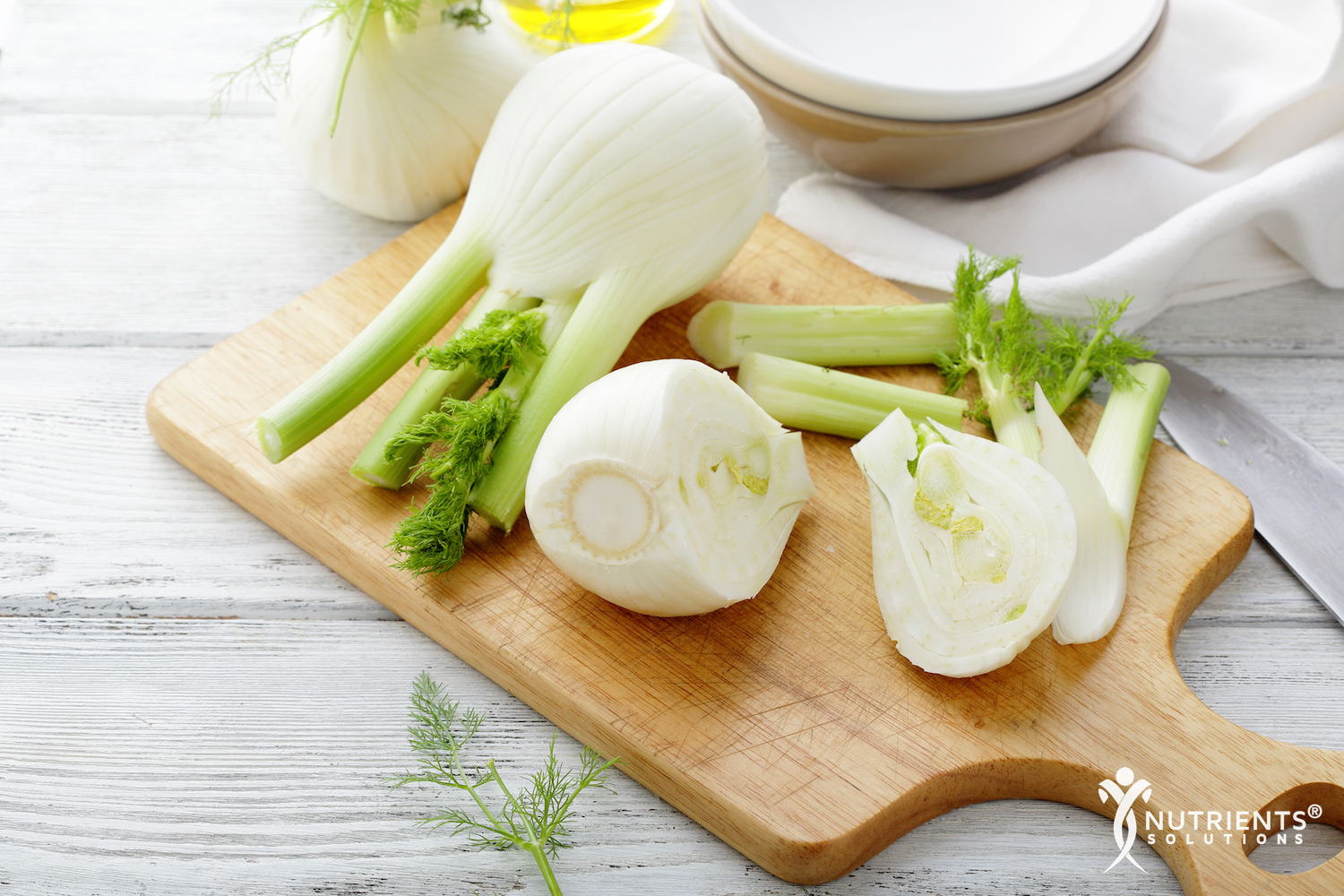Wellness Demystified: We Can Help You Discover Optimum Health
9 Uses of Fennel as a Natural Remedy

Fennel is a bulbous vegetable with a long history of use in traditional medicine throughout the European, Mediterranean and Asian regions. Its stems, seeds, fruit, and leaves are all used as medicine to treat a wide range of ailments, from stomach aches to arthritis and infectious diseases. It’s widely used around the world by mothers to treat colic in newborn babies and increase the flow of breast milk [1]. Fennel’s ability to help soothe the gastrointestinal tract and protect the liver’s health make it helpful for improving digestion and the assimilation of nutrients.
1. Naturally Relieves Gas, Bloating and Stomach Aches
Fennel is an effective all-around remedy for stomach ailments. It’s known to help improve stomach aches, gas, bloating, indigestion, colitis, constipation and mild spasms of the stomach and intestines [2]. In Indian tradition, fennel seeds are commonly chewed after a meal to promote better digestion. It works by relaxing the muscles of your intestines, reducing inflammation and even reducing stress and anxiety, which can contribute to gastrointestinal discomfort [1].
2. Protects Your Liver from Damage
In animal studies, fennel seeds have been shown in studies to help protect the liver from toxins. The active compounds in fennel to which researchers attributed this action were d-limonene and ?-myrcene. D-limonene is found in citrus fruits and is known to offer a wide range of health benefits, including the ability to assist the body with detoxification [1].
3. Boosts Your Immune System with its Antimicrobial Activity
Traditionally, fennel was used to fight infections like conjunctivitis, diarrhea, fevers, respiratory infections, skin diseases and more. Research has corroborated its historical use as an antibiotic. Fennel has been shown in lab studies to have antibacterial, antifungal and antiviral effects. It inhibits the growth of yeasts like candida, and it fights mold, bacteria, and viruses like herpes simplex. As modern-day antibiotics face the increasing issue of resistant bacterial strains, the active compounds in fennel may be promising as natural antimicrobial agents.
4. Reduces Inflammation and Pain
In studies on rats and mice, fennel extract was found to help improve symptoms of acute and chronic inflammatory diseases commonly treated with nonsteroidal anti-inflammatory drugs (NSAIDs). It works by modulating the body’s pathways that signal an inflammatory response. Long-term inflammation not only increases the risk of chronic diseases but also can cause excess weight gain.
Fennel also has an antinociceptive effect, which means it diminishes the sensation of pain signaled by the brain in response to painful stimuli. In cases of inflammatory diseases such as arthritis, supplementing with fennel may be helpful in reducing inflammation and pain [1].
5. Lowers Stress and Anxiety
Fennel is shown to have anti-anxiety and anti-stress effects in animal studies, which explain its use in aromatherapy. In rats made to perform various physical tests, researchers found that those that took fennel essential oil orally had lower biochemical markers of stress compared to a control group. While human studies on the effects of fennel on mood disorders are lacking, research has revealed it has a brain-boosting overall impact, which may translate to improvements in mood [1].
6. Provides Anticolitic Benefits
Fennel helps relax the colon, effectively reducing swelling known as colitis. One study on colitis patients found that a concoction of fennel, St. John’s wort, dandelion root, lemon balm, and calendula eased intestinal pain [2]. Fennel also helps people with colitis by reducing gas and spastic disturbances in the GI tract [1].
7. Balances Cholesterol Levels
A study on mice suggests that fennel may be beneficial for people with cholesterol issues. Researchers found that fennel extract helped lower levels of total cholesterol, LDL (“bad”) cholesterol, and triglycerides. Meanwhile, it raised levels of HDL cholesterol, which is a type that helps eliminate LDL cholesterol from the body [1]. Thanks to these effects, taking fennel regularly could help lower your risk of heart disease.
8. Helps Treat Respiratory Ailments
Fennel seed essential oil works as an expectorant when inhaled, which means it thins the mucus in your respiratory tract, making it easier to expel phlegm when you cough. This can be helpful in the treatment of upper respiratory infections like bronchitis, or even in polluted environments [1].
9. Fights Disease with Antioxidant Power
Fennel contains antioxidants, which help boost your immune system and help protect your cells and DNA from oxidative damage–a known factor in the development of heart disease, diabetes, cancer, Alzheimer’s disease and other chronic diseases that are often age-related. Oxidative stress increases with age unless there’s an increase in your intake of antioxidants. By neutralizing the free radicals that cause oxidative damage, fennel can help prevent degenerative diseases [1].
How to Use Fennel as a Remedy
As a natural remedy, fennel can be used in many different ways. The bulb can be eaten whole or juiced through a juicer. Its leaves can be used as an herbal topping for salads, added to smoothies or steeped as tea. Fennel seeds can also be used to make tea or ground into a paste. If you can’t find fennel at your local grocery store, or if you want a more concentrated form of it, you can find fennel extract, which is a concentrated liquid made from the seeds of fennel. Fennel seed essential oil is an even more potent product of fennel seeds, offering the benefits of the plant in its most concentrated form. Fennel is considered to be a very safe herb, which is also consumed as a food and is not known to have any adverse side effects when used as a supplement [2].


© 2019 Nutrients Solutions, LLC. All rights reserved. Disclaimer: The information provided is for educational purposes only and does not constitute medical advice. Always seek the advice of your physician or qualified healthcare provider with any questions or concerns about your health. Check with your doctor before beginning any exercise program. Never disregard or delay seeking medical advice because of something you have heard or read in this article or the internet.












